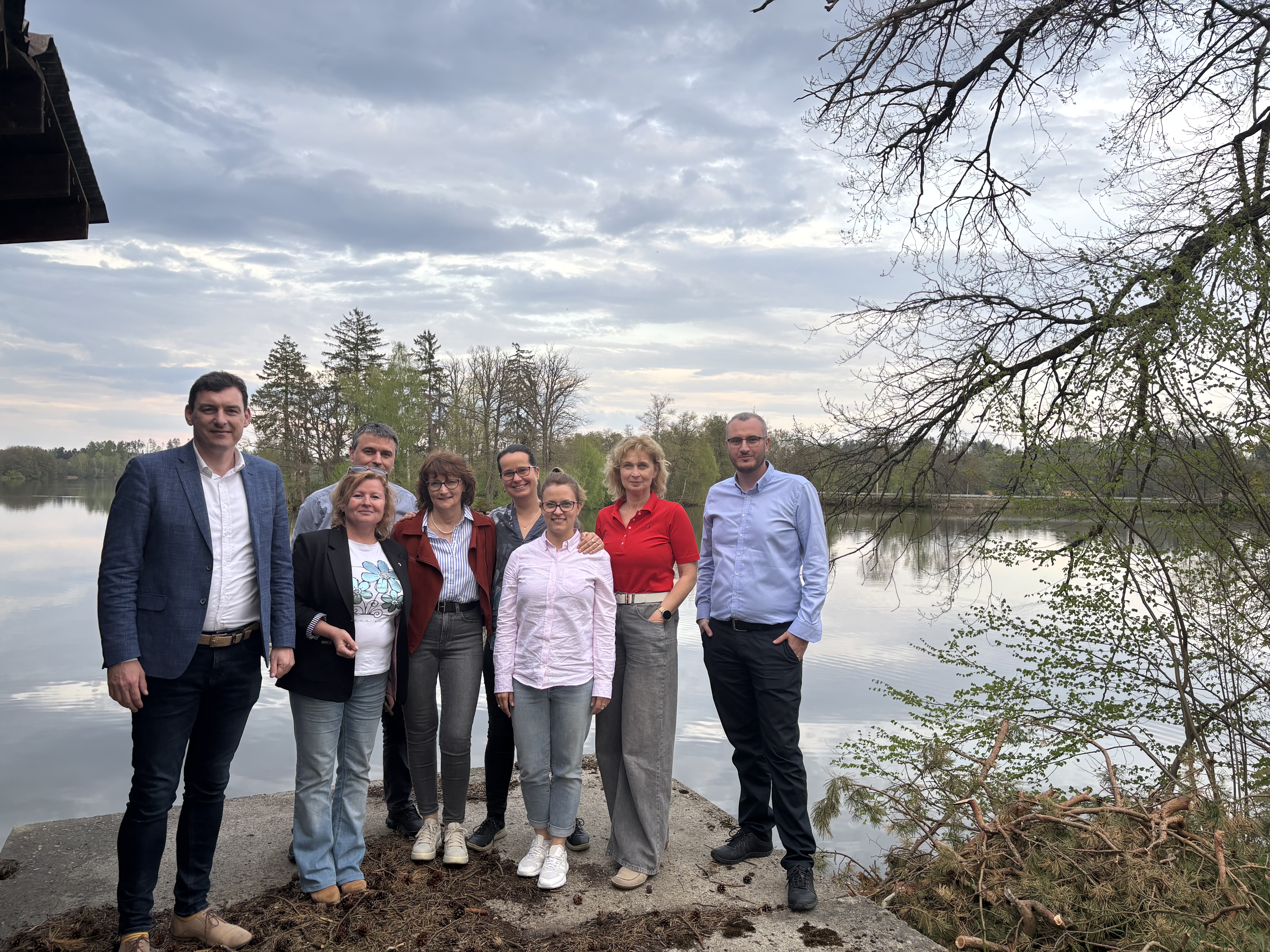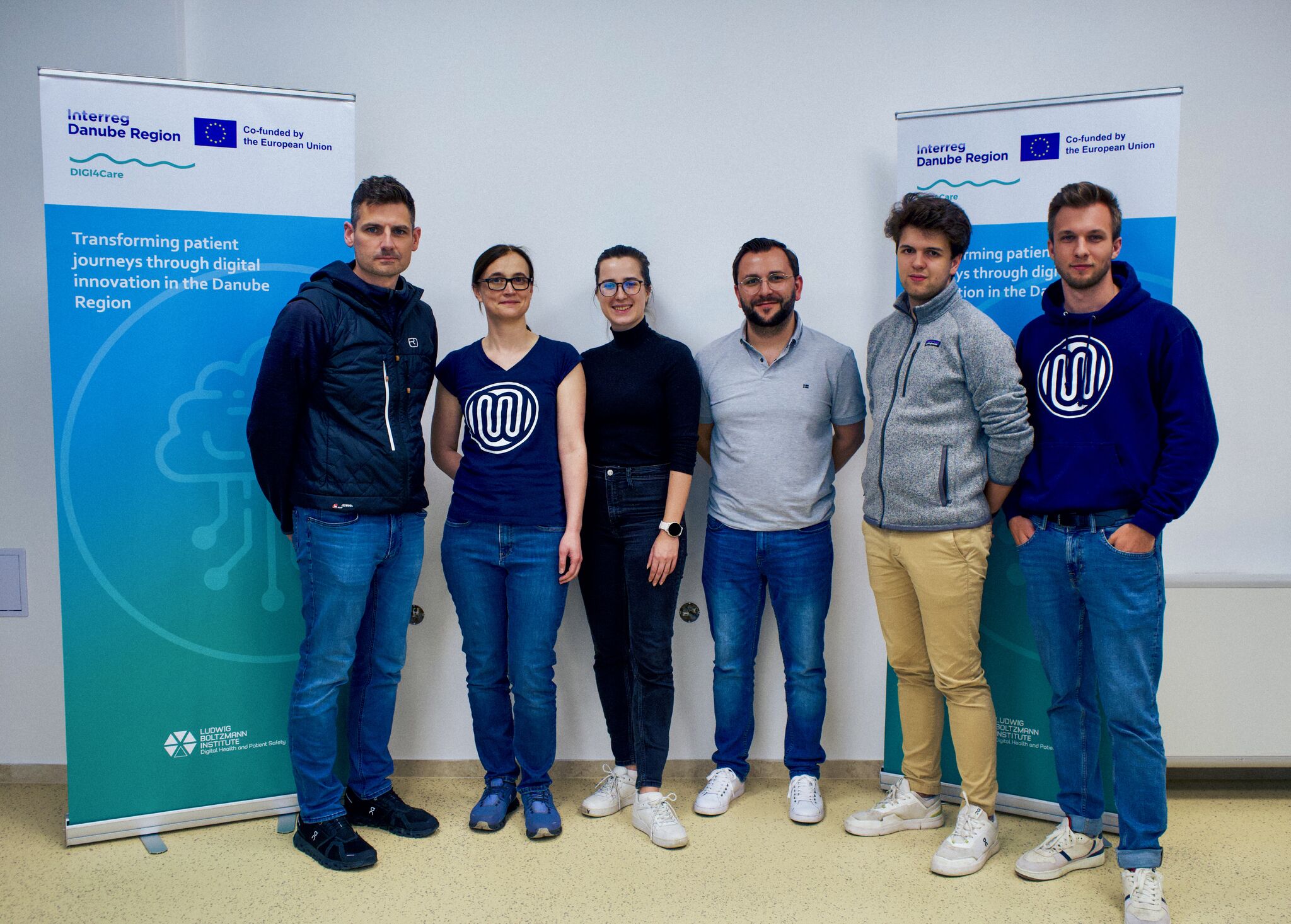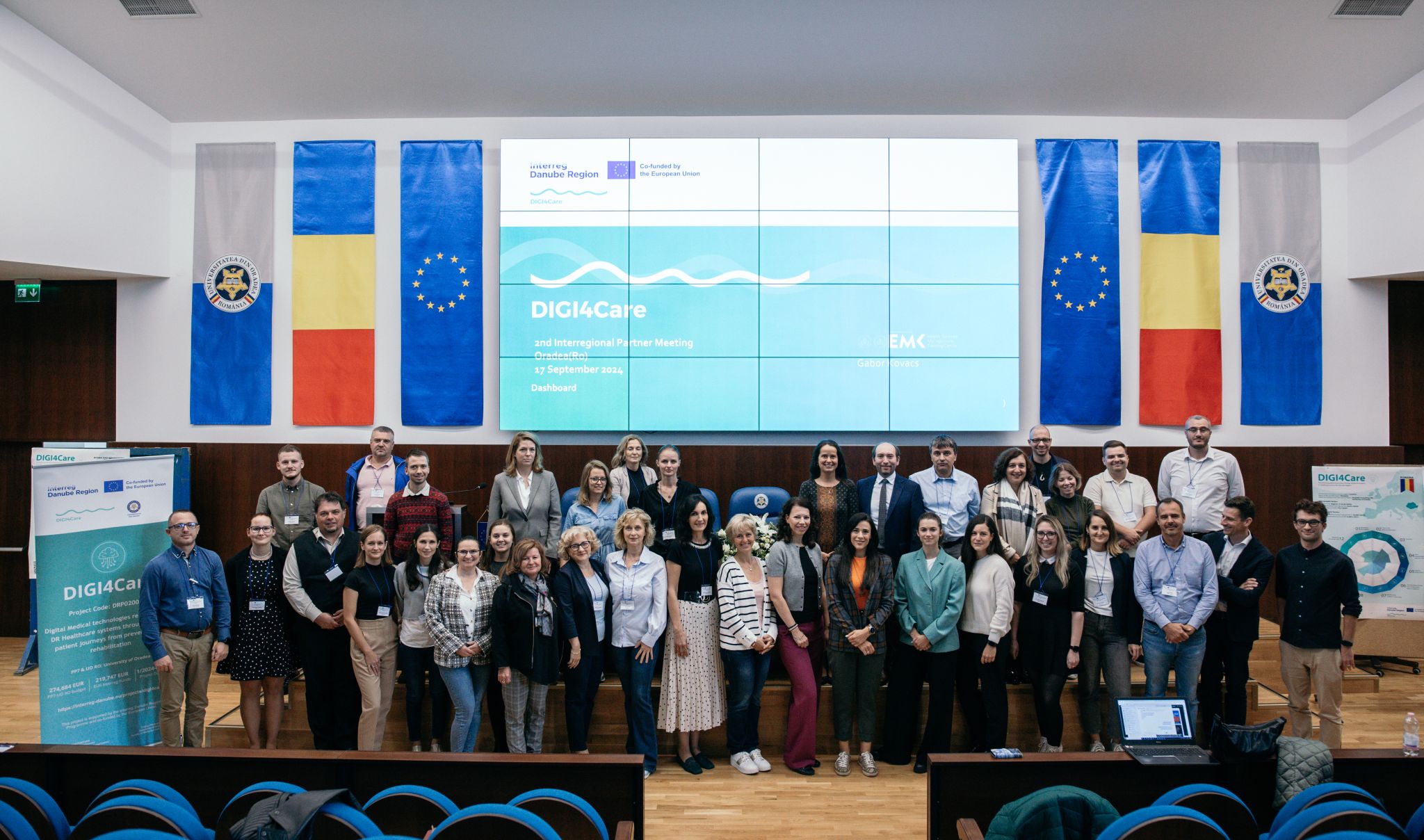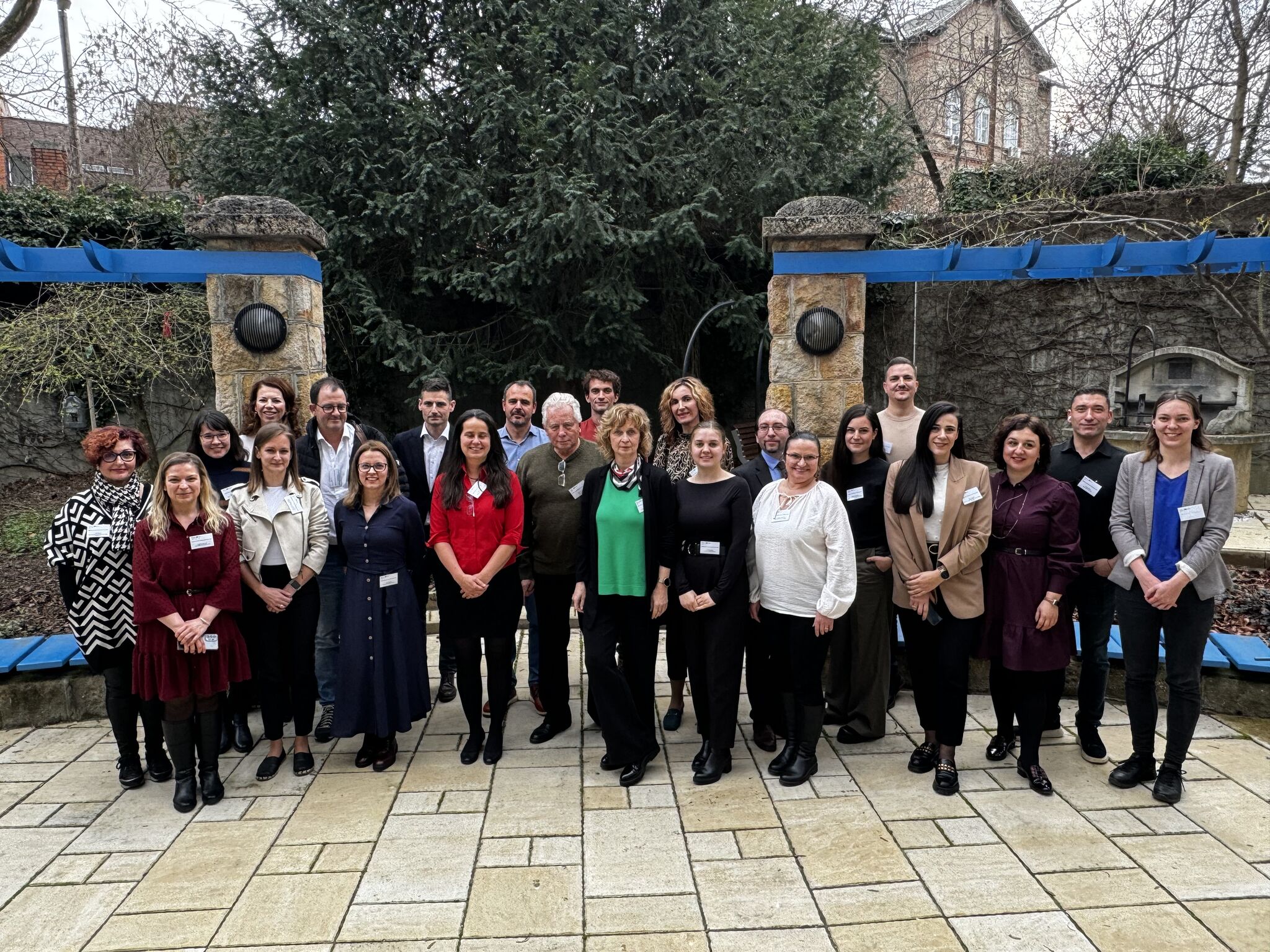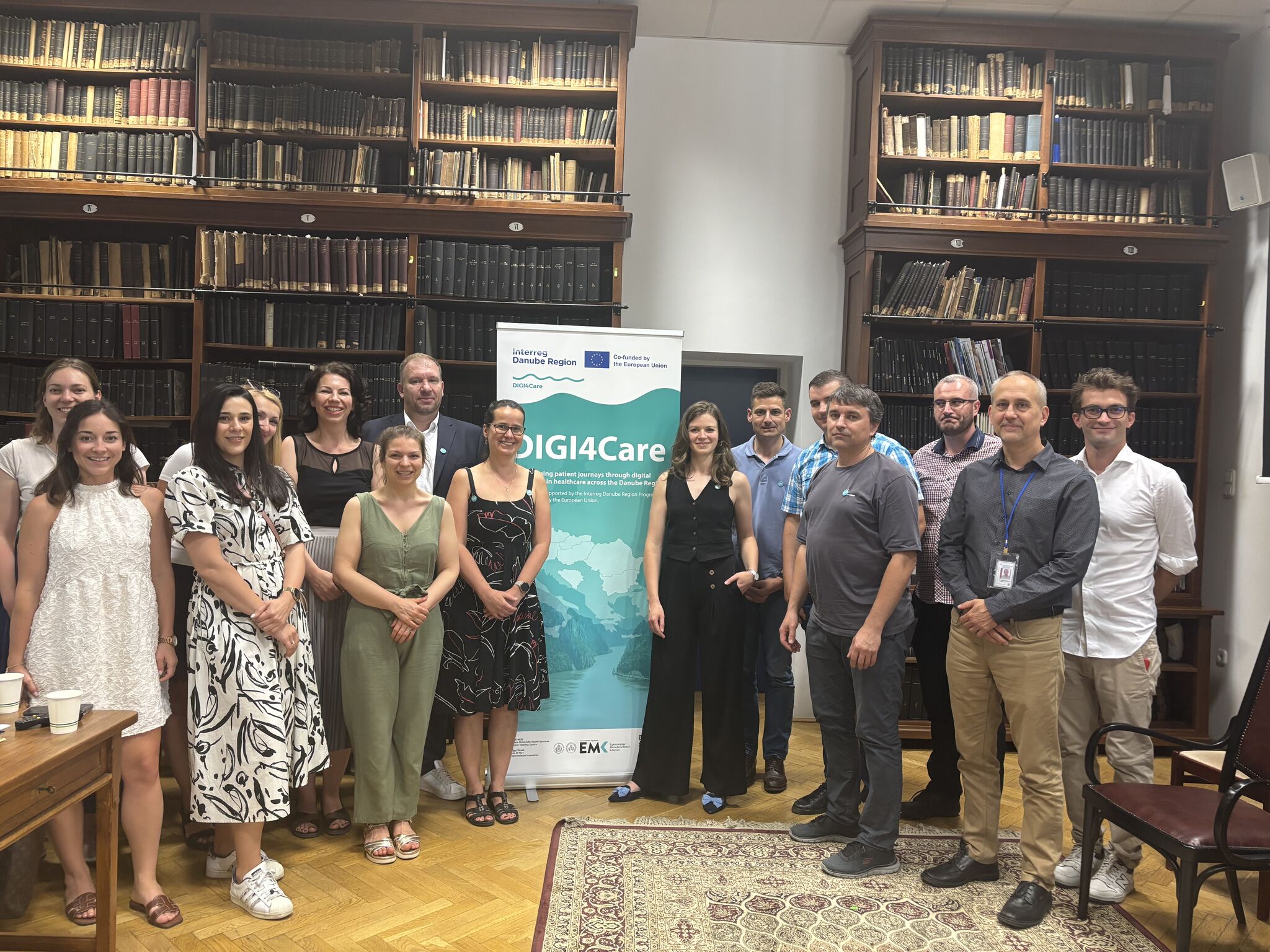
Peer Visit in Hungary
DIGI4Care Partners Explore Digital Health Innovations During Peer Visit in Hungary
Budapest, Hungary – June 2025
DIGI4Care partners gathered in Hungary for a peer learning visit dedicated to exploring two innovative pilot projects that are advancing digital transformation in chronic disease management and healthcare training. Over two days, representatives from across Europe visited pilot sites in Budapest and Lake Balaton, where local teams are testing, validating, and scaling digital solutions in diabetes prevention and point-of-care ultrasound (POCUS) education.
Advancing Digital Health in Practice
The Hungarian visit formed part of DIGI4Care’s ongoing series of peer learning exchanges, which allow project partners to share insights, exchange feedback, and assess pilot progress in real-world settings. These visits are essential to ensuring that each country’s experiences contribute to improving care models across the broader DIGI4Care network.
Throughout the visit, participants had the opportunity to see how digital health tools are being integrated into everyday clinical workflows, from community-based screening to remote professional training.
Pilot 1: AI-Powered Eye Screening for Diabetes Prevention
The first Hungarian pilot focuses on improving the early detection of diabetic retinopathy, one of the most common complications of diabetes, through AI-assisted retinal imaging.
In Hungary, over one million people are living with diabetes, yet many do not undergo regular eye examinations, increasing their risk of preventable vision loss. To address this gap, Semmelweis University’s Departments of Ophthalmology and Family Medicine, in collaboration with a general practice in Páty (Budapest agglomeration), are introducing a non-mydriatic fundus camera equipped with AI-based diagnostic software.
This technology enables quick, non-invasive screenings at the primary care level, facilitating earlier detection and intervention. During the visit to Semmelweis Medical University’s Ophthalmology Clinic and a mobile diabetic screening event at Lake Balaton, partners observed live demonstrations of the system and discussed its potential to enhance accessibility, particularly in underserved communities.
Pilot 2: Remote Training for Point-of-Care Ultrasound (POCUS)
The second pilot explores the use of tele-education to train healthcare professionals in point-of-care ultrasound — an essential diagnostic skill in emergency and community healthcare. Conducted as a randomized controlled non-inferiority trial, the pilot evaluates whether remote instruction can achieve outcomes comparable to traditional, in-person training.
Participants include professionals from Austria’s Acute Community Nurses and Hungary’s National Ambulance Service (NAS), who are working together to assess the scalability of this innovative training approach.
At the National Ambulance Service Headquarters and Museum in Budapest, participants witnessed a live remote diagnosis session, showcasing how tele-education could support faster, more decentralized training. The demonstration also illustrated how digital methods could become part of the Ambulance Service’s daily operations, continuing its 138-year tradition of innovation and commitment to public health.
Collaborative Learning and Reflection
As part of the visit, partners took part in a SWOT analysis session to collectively evaluate the two pilots. This exercise helped identify key strengths, challenges, and opportunities for improvement and replication. Discussions emphasized the importance of institutional coordination, stakeholder engagement, and focusing innovation efforts on populations and areas with the greatest potential for impact.
Strengthening the DIGI4Care Network
The Hungarian peer visit highlighted DIGI4Care’s core mission: fostering cross-border collaboration to make digital health innovations both practical and sustainable. By learning from each other’s experiences, partners are helping to ensure that emerging technologies improve care quality and accessibility across Europe.
The event was hosted by the Semmelweis University Health Services Management Training Centre, Lead Partner of DIGI4Care, in close cooperation with Semmelweis University’s clinical departments, the National Ambulance Service, and the Austrian Acute Community Nurses network.
DIGI4Care continues to advance integrated digital care for people living with diabetes, cardiovascular disease, Alzheimer’s disease, dementia, and other cognitive disorders under the Interreg Danube Region Programme, building a stronger, more connected future for healthcare in the region.
News & Events
Read the most recent updates and explore the upcoming events.

